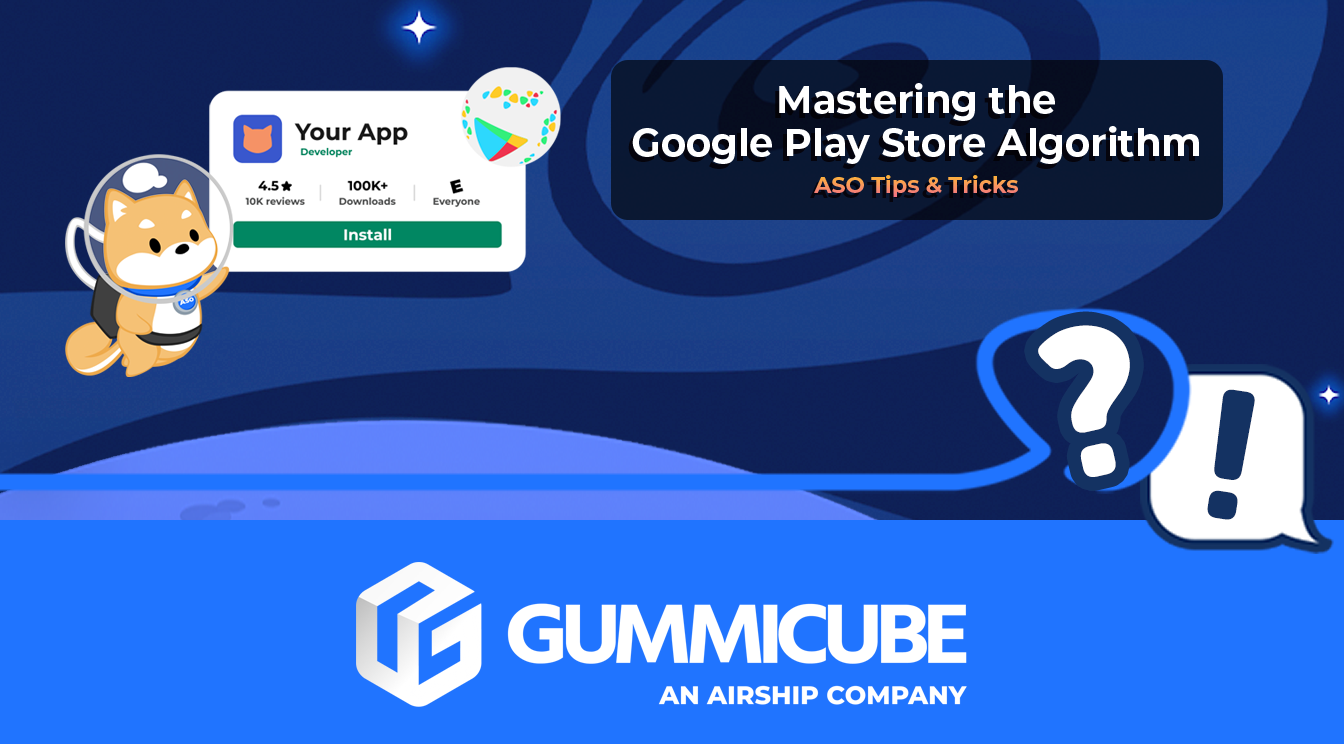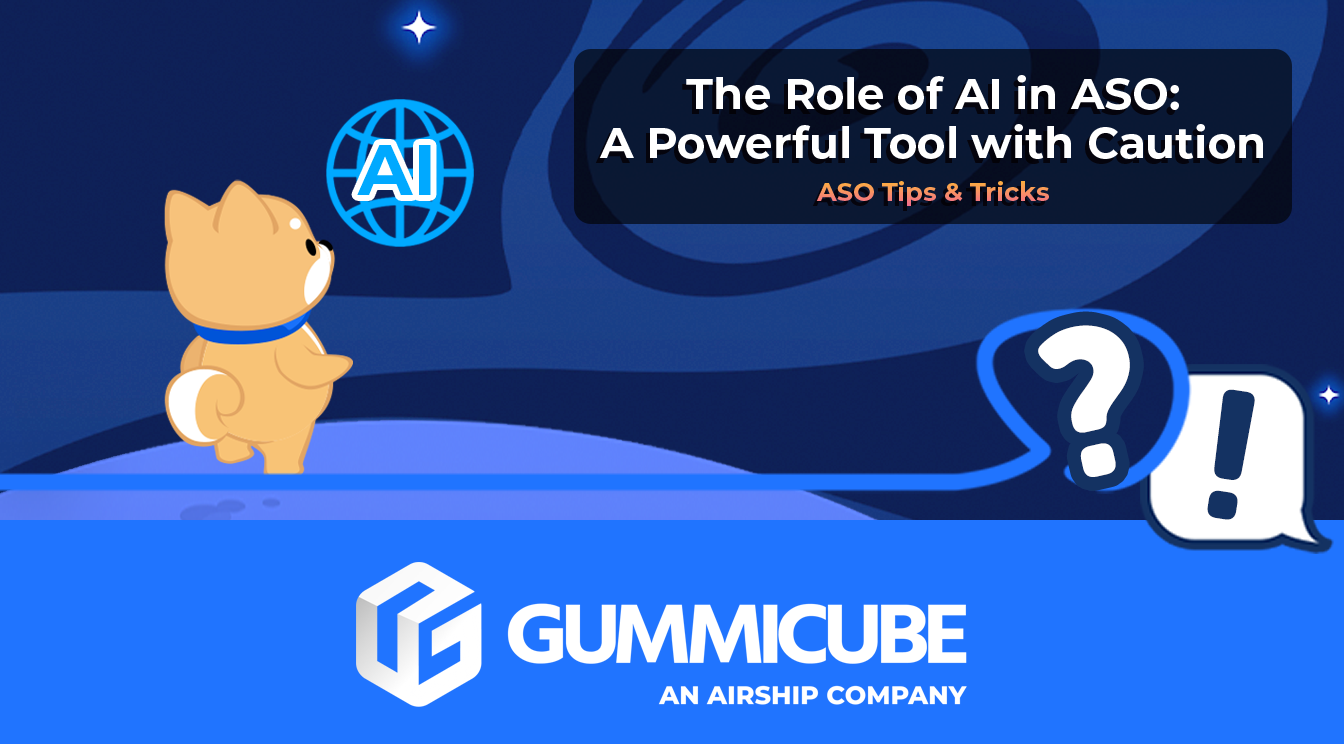
Mastering the Google Play Store Algorithm
Posted on April 16th, 2025
Learn how to work with the Google Play Store algorithm using high-level ASO strategies that improve visibility, performance, and long-term app success.

App Store Optimization (ASO) is a critical factor in an app’s success, impacting everything from search visibility to conversion rates. AI has woven itself into nearly every aspect of our lives, and ASO is no exception. With promises of automation, efficiency, and data-driven insights, it might seem like AI is the key to unlocking ASO success. But here's the catch: while AI is a powerful tool, it’s just that—a tool. It can't replace the expert strategies and insights that drive real, lasting results in a complex ASO landscape.
While AI can generate metadata, suggest keywords, and analyze store data at scale, it lacks the ability to fully understand market trends, user intent, and shifting app store algorithms. Without proper oversight, AI-driven ASO could lead to keyword stuffing, poor-quality descriptions, and missed opportunities for genuine audience engagement.
That’s why AI should be seen as a supporting tool—not a standalone solution. It can enhance workflows and provide valuable insights, but human expertise is still necessary to interpret data, refine messaging, and regularly adjust strategies based on real-world results.
In this article, we’ll break down:
By understanding where AI fits within ASO—and where it falls short—you’ll be better equipped to make informed, strategic decisions that drive real results.
AI has made advancements in content generation, keyword discovery, and automation. It can rapidly process vast amounts of data, identifying keyword opportunities, suggesting metadata, and even generating descriptions based on competitor analysis. AI-driven tools are particularly useful for repetitive tasks, such as pulling ranking reports, analyzing keyword movement, and predicting search trends based on historical data. This level of automation can significantly reduce the time required for basic ASO maintenance, allowing marketers to focus on higher-level strategy.
While AI can speed up certain ASO tasks, it cannot replace strategic decision-making. AI lacks the ability to understand user intent, brand identity, and market shifts in the same way a skilled ASO professional can. For example, AI may suggest popularhigh-volume keywords, but it doesn’t understand the strategic placement required to maximize impact. AI-generated descriptions often prioritize keyword density over readability, leading to a disjointed user experience that can harm conversion rates.
Despite its advantages, AI isn’t a catch-all solution. It has limitations that can negatively impact ASO if not managed or prompted carefully.
Without human oversight, AI-driven ASO can easily become ineffective or even harmful. The most successful ASO strategies use AI alongside expert decision-making—not in place of it.
AI has its place in ASO, but it’s only as effective as the expertise guiding it. It can assist in research and automation, but it cannot replace the nuanced decision-making required for long-term success. Apps that rely solely on AI risk missing out on real opportunities to connect with users and stay ahead of competitors.
When it comes to ASO, intentional and strategic copywriting is crucial. On-page optimization—including app titles, subtitles, descriptions, and even text within screenshots—all contribute to discoverability and conversion rates. Every piece of written content should serve a purpose, whether it's boosting keyword rankings or improving user engagement.
AI’s inability to create truly compelling, conversion-driven content is why human involvement is so essential. While AI can provide inspiration and suggest improvements, it takes a skilled ASO professional to craft a description that feels natural, persuades users, and ultimately drives downloads.
If you choose to incorporate AI into your ASO strategy, it can certainly boost efficiency and provide valuable data-driven insights. However, it’s important to remember that combining AI with human expertise will give you the most accurate and actionable results.
Here’s how to evaluate your app’s success and determine if your ASO copywriting and strategies are delivering strong results, even when incorporating AI:
By continuously tracking keyword performance, organic and paid results, app traffic, installs, and conversion rates, you can adjust your strategy for greater visibility and long-term growth in the app store. AI can help automate data collection and surface key trends, but human expertise ensures you interpret and act on the data effectively.
AI has significantly enhanced the way App Store Optimization (ASO) is approached, especially when it comes to content generation. Tools powered by AI can assist in quickly producing metadata, generating title ideas, suggesting keywords, and automating repetitive tasks. This ability to streamline content creation allows ASO professionals to save time and focus on more strategic aspects of app marketing. For example, AI can analyze vast amounts of data to generate potential keywords or metadata suggestions that might have otherwise taken days to compile manually.
However, while AI excels at producing large volumes of content quickly, it’s important to remember that it cannot fully replace the creative and strategic elements required for successful ASO. The downside is that AI-driven content can sometimes prioritize keyword density over readability, leading to descriptions that may not engage users or capture the essence of the app’s unique value. Moreover, AI doesn’t have the nuanced understanding of user behavior, brand identity, or shifting market trends that a seasoned ASO professional can bring to the table.
In other words, while AI is an incredibly powerful tool for generating content and automating routine tasks, it should be used as part of a broader strategy that includes human expertise. It can support your ASO efforts, but it’s the combination of AI’s speed and scale with human judgment and creativity that truly drives results.
App Store Optimization is an ever-changing field where success hinges on staying informed, adapting strategies to new trends, and constantly refining your approach. Whether you’re leveraging AI for content generation and data analysis or relying on expert-driven strategies, the goal is to maximize your app’s visibility and conversion potential.
If you’re looking to incorporate AI into your ASO efforts, it’s essential to do so with a strategic mindset. While AI offers powerful automation capabilities and can help with the bulk of content generation, it’s important not to lean too heavily on it. By working alongside experts who understand the intricacies of app marketing, you can ensure that AI becomes a valuable asset rather than a crutch.
Let’s chat about how you can use AI effectively to boost your ASO strategy—optimizing your app’s content, improving user engagement, and ultimately driving sustainable growth. Gummicube can help you craft a balanced approach that harnesses the power of AI while retaining the human touch that makes all the difference in achieving ASO success.

Learn how to work with the Google Play Store algorithm using high-level ASO strategies that improve visibility, performance, and long-term app success.

Boost app installs with smarter App Store marketing. Learn how ASO, creative assets, and paid strategies work together to drive growth and visibility.

Choosing the right app category is crucial for ASO success, impacting visibility, rankings, and user growth. Discover how the wrong choice can hold you back.